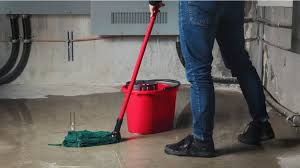Sewage backups are not only unpleasant, but they’re also hazardous. The sewage backup situation can quickly become a nuisance to a health hazard for homeowners and companies. Knowing the importance of preventative measures is important if you’ve ever had to deal with smelly water, mess, or even contamination. Understanding what causes sewage backups can help protect your house, especially in areas prone to heavy rainfall or aging infrastructure. If you face this problem, a professional sewage backup cleanup in Durham is necessary for a complete and safe restoration.
Here are some leading causes of sewage overflows and what you can do to prevent them.
1. Clogged Pipes & Drains
A simple clog is the leading cause of sewage leaks. Over time grease, hair, and soap scum, as well as non-flushables like paper towels or sanitary products, can build up inside drains and pipes. Over time, non-flushable objects like paper towels or sanitary goods, as well as hair, soap scum, and oil, may accumulate.
Preventive Tips
- You should only flush toilet paper.
- Drain strainers can be used to catch hair and debris.
- Never pour grease and oil down the sink.
- To keep drain pipes clear, schedule routine drain cleaning.
2. Tree Root Interception
Tree roots have a strong will to survive and can travel great distances, searching for moisture. Unfortunately, sewer pipes can be the target of a lot of damage. The roots can enter tiny cracks in underground pipes. They will grow and block the pipe. This can cause major pipe damage and a sewage overflow.
Preventive Tips
- You should always check the location of your sewers before planting any trees.
- Choose tree species with fewer invasive root systems.
- Consider having a plumber with a CCTV camera inspect your sewer if you suspect root invasion.
- Consider using pipe lining or root barriers to keep roots away.
3. Aging Sewer Systems
In cities with older infrastructures, like Durham, aging systems can cause backups. Older pipes might be made from cast iron or clay. Both are susceptible to cracking, corrosion, and collapse. As these systems begin to deteriorate, backups become more common.
Preventive Tips
- It is important to have your sewer system inspected regularly, especially if your home is older than thirty years old.
Consider replacing your old piping with PVC.
- Take proactive measures to maintain your infrastructure in areas with old infrastructure.
4. Heavy Rainfall And Flooding
Stormwater and sewage can share pipes in municipal sewers, so excessive rain may overwhelm them. Once the system is full, wastewater can overflow into homes and structures. Even if there is no flooding, an overloaded system could cause water to leak through your toilets or basement drains.
Preventive Tips
- Install a backwater valve to prevent sewer water from entering your house.
- Be sure that your downspouts are directing water away.
- Elevate basement installations above flood levels.
5. Sewer Lines Which Have Broken Or Collapsed
Underground pipes are susceptible to natural wear. Due to construction activity, ground shifting, or soil settlement, pipes can break or collapse. In this case, the sewage can’t move freely, and it will eventually flow back into your house.
Preventive Tips
- Make sure to schedule regular plumbing inspections after any nearby construction.
- When you discover a problem with your pipes, it is important to repair or replace them immediately.
6. Illegal Plumbing Connections
Some homeowners incorrectly connect French drains and rainwater collection systems to sanitary sewer lines to improve drainage. This can overload the sewer system, especially during storms.
Preventive Tips
- Ensure that your drainage system complies with your local building code.
- Report illegal connections if neighbouring systems appear to be misconfigured.
When Prevention Doesn’t Work
Even if you take all the necessary measures, sewage can back up. The quickest action is to call the authorities if this happens. If you attempt to clean it alone, you may be exposed to harmful contaminants and bacteria. You should always rely on a professional to handle sewage backup cleanup in Durham for an effective, safe, hygienic cleanup. Experts possess the necessary tools, protective clothing, and training to safely handle contaminated sites and restore your home.
Conclusion
Sewage backups are more than a messy inconvenience. They warn that something in your plumbing or the city’s infrastructure needs attention. Making the correct preventative and maintenance investments may save money on repairs and safeguard your property.
Don’t wait to call professionals to handle Durham’s sewage backup cleaning. You can return to your normal routine as soon as and as safely as possible.




